Water, Sanitation and Hygiene Infrastructure Under Attack in Gaza
Part of a series on the impact of the war on all sectors of economic life within Gaza, Anera’s immediate response and plans for the future. Other posts cover livelihoods, housing, education, health and food production systems.
Total degradation of WASH infrastructure is creating fatal and preventable conditions across Gaza
On October 9th, Israel’s defense minister ordered a total siege on electricity, water, and fuel sent to Gaza from Israel. These essential resources are key to the maintenance of water safety systems that allow Gazans to practice effective hygiene, drink safe water, and prevent water-borne diseases. Access to these services, (also known as water, sanitation and hygiene or “WASH”), is a human right outlined by the United Nations.
Israel’s management of Gaza’s essential resources has turned into a form of infrastructural attack, and 95% of Gaza’s population has had no access to clean water for months. Across Gaza, only 1.5 to 1.8 liters of water per day is available to each person. The WHO daily recommended allowance of clean water is 100 liters per person. By targeting the sources of Gaza’s water supply, Israel has manufactured a water shortage and a dire humanitarian crisis.
Gaza depends on three Mekorot water pipelines that run from Israel to provide drinking water. According to OCHA, only one of them – Bani-Saeed – is currently operational, but only at 47% of its capacity. The other two have been non-operational for months.
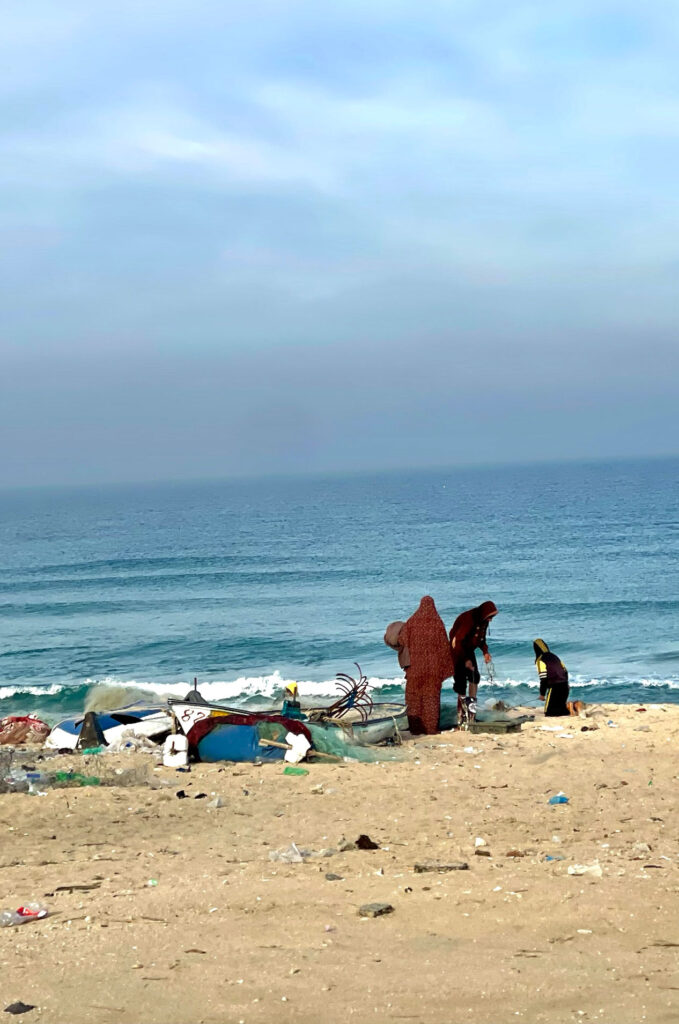

Water desalination plants remove salt and chemicals from water, making it safe to drink. Reverse osmosis is a water treatment process that removes contaminants from water by using pressure to force water molecules through a semipermeable membrane.
Water salination plants and reverse osmosis (RO) machines also support WASH in Gaza. According to the FAO and UN, 97% of Gaza’s ground water is undrinkable. By filtering the water that comes from Gaza’s one polluted aquifer, these technologies create additional sources of potable water. However, without electricity and fuel to run, these operations stopped shortly after October 9th.
Moreover, Israeli airstrikes have damaged wastewater systems and water wells, reducing access to clean water and causing increased contamination of available water. In combination with the stranglehold on Gaza’s water lines, the entire population of the Gaza Strip has had no infrastructural source of drinkable and hygienic water for over 150 days.
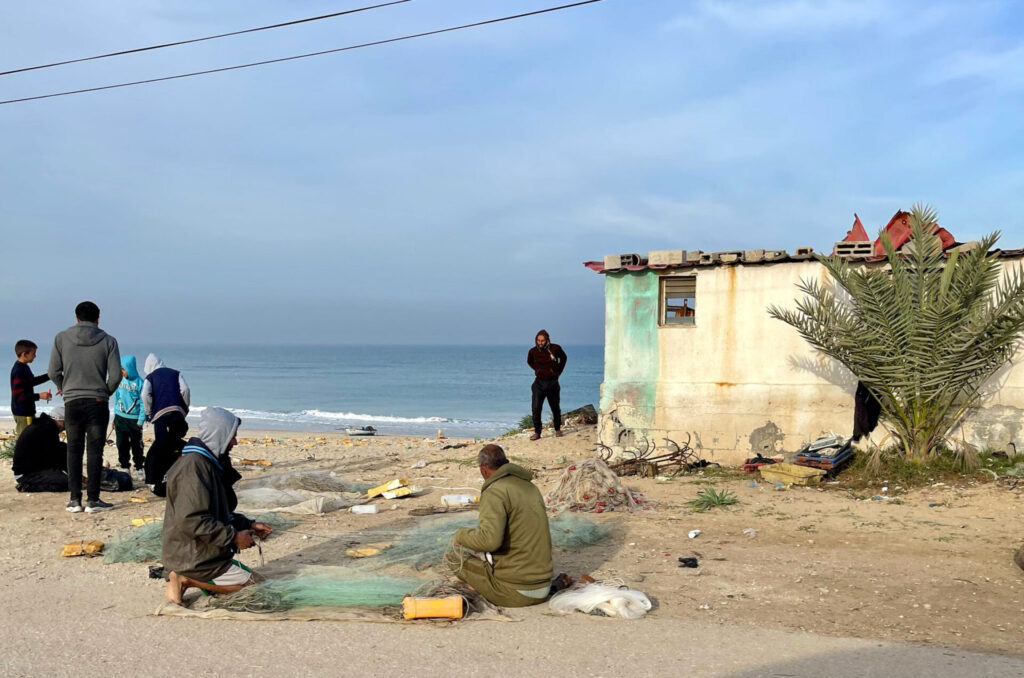

The delivery of clean water through humanitarian aid could be a short-term solution to these infrastructural challenges. Yet, Israel’s strict limitations on aid have made it incredibly difficult to deliver water. According to the UN, of the 77 proposed missions to northern Gaza between January 1 and February 15, the ones denied by Israel overwhelmingly planned to support WASH.
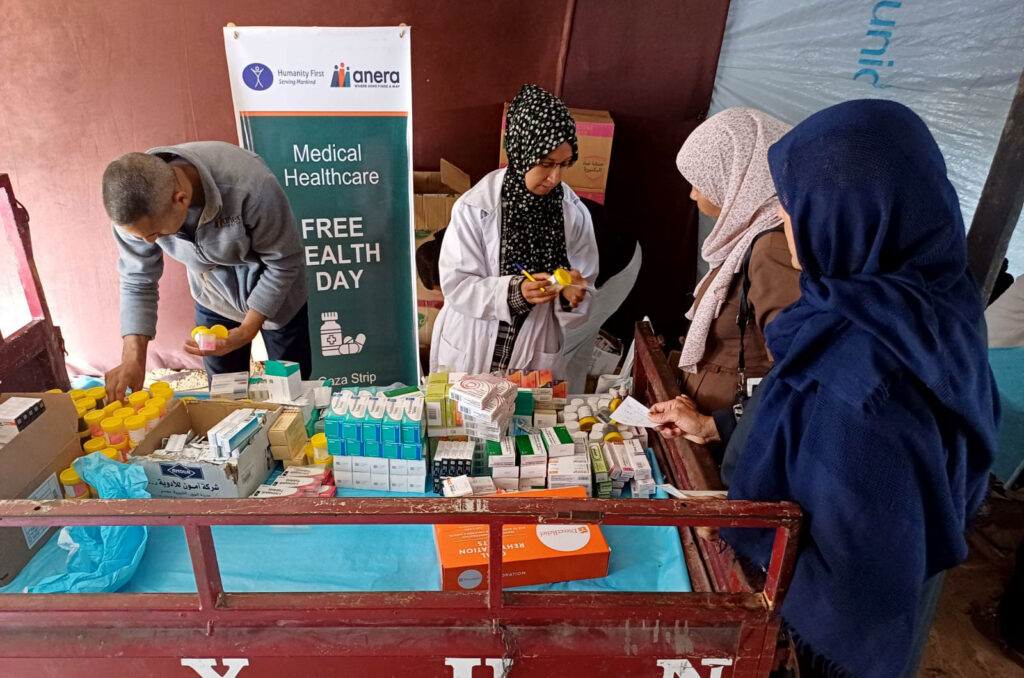

Now, Gaza’s population is enduring horrific and inhumane conditions without access to WASH. Due to Israel’s forced evacuation from the north to the south of Gaza, people have been crowded into shelters and encampments into Rafah in the south. These sites have become the most densely populated places in the world, according to CNN, creating stress on WASH infrastructure that renders them unusable.
The shortage of clean water poses obvious difficulties to cooking and preparing food in a safe manner, as well as basic personal hygiene. For menstruating women who are already facing a systemic shortage of menstrual supplies, the water shortage means they have virtually no hygienic way to manage their periods.
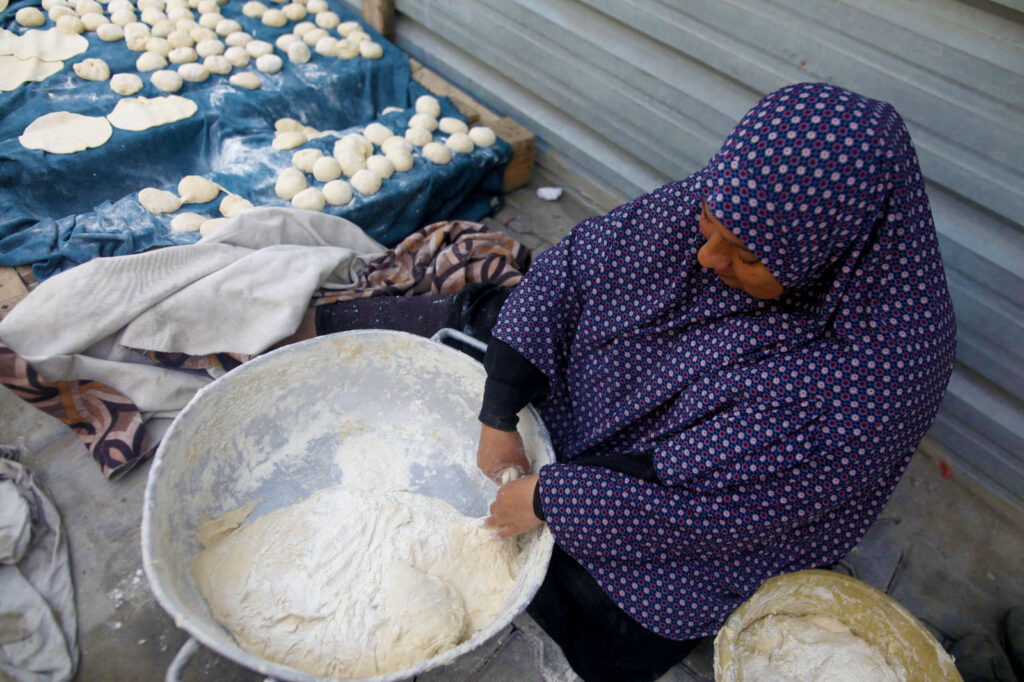

From the beginning of the war, sewage pumping stations have been directing sewage into the sea, while the remaining domestic sewage is flooding streets and accumulating under debris. In some cases, hundreds are sharing just one toilet. Many people, like Salwa al-Masri, are finding ways to avoid using the bathroom.
“It’s horrible,” said Salwa, “I wouldn’t drink water. I would stay thirsty so I wouldn’t have to go to the bathroom. I stopped drinking coffee and tea.”
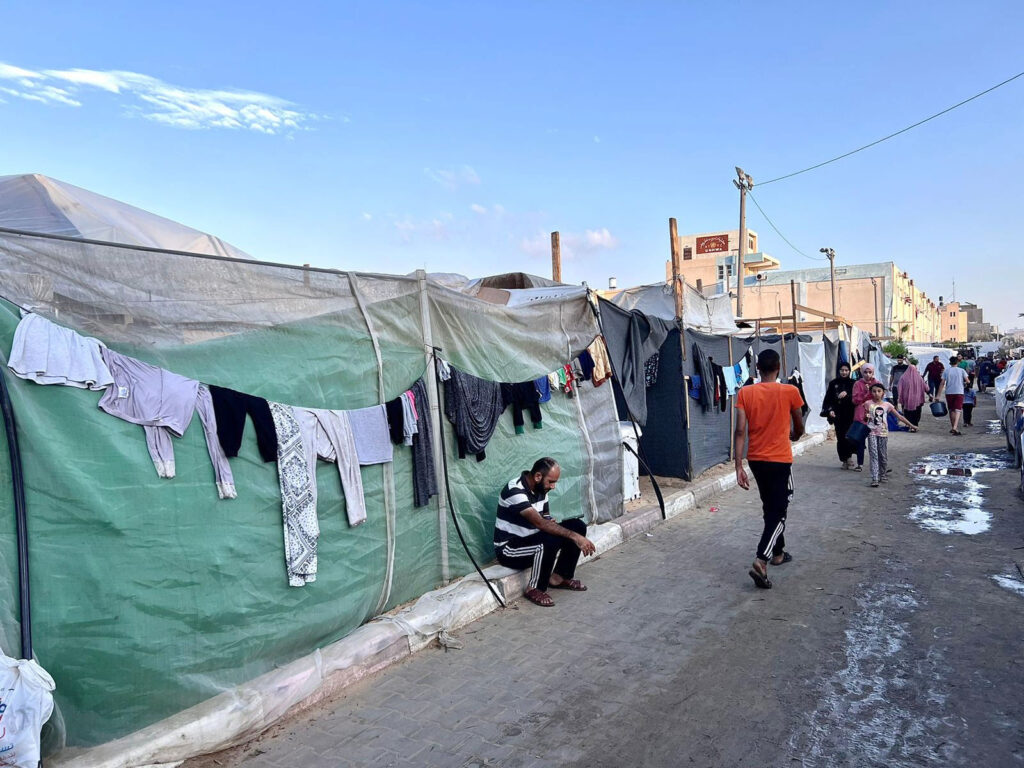

In close quarters and without water to practice sanitation and hygiene, Gazans are facing the danger of widespread infection and disease in addition to military strikes. The combination of consuming unclean water, chronic malnutrition due to Gaza’s destroyed food systems, and overcrowded living conditions make water-borne diseases virtually impossible to avoid.
Cases of cholera, and hypertension have risen exponentially, while infections like influenza, chest infections, skin ulcers, scabies and lice have spread uncontrollably. Hepatitis A is now spreading unchecked. Hospitals are facing reduced functionality without WASH and simply cannot treat the widespread health issues now emerging.
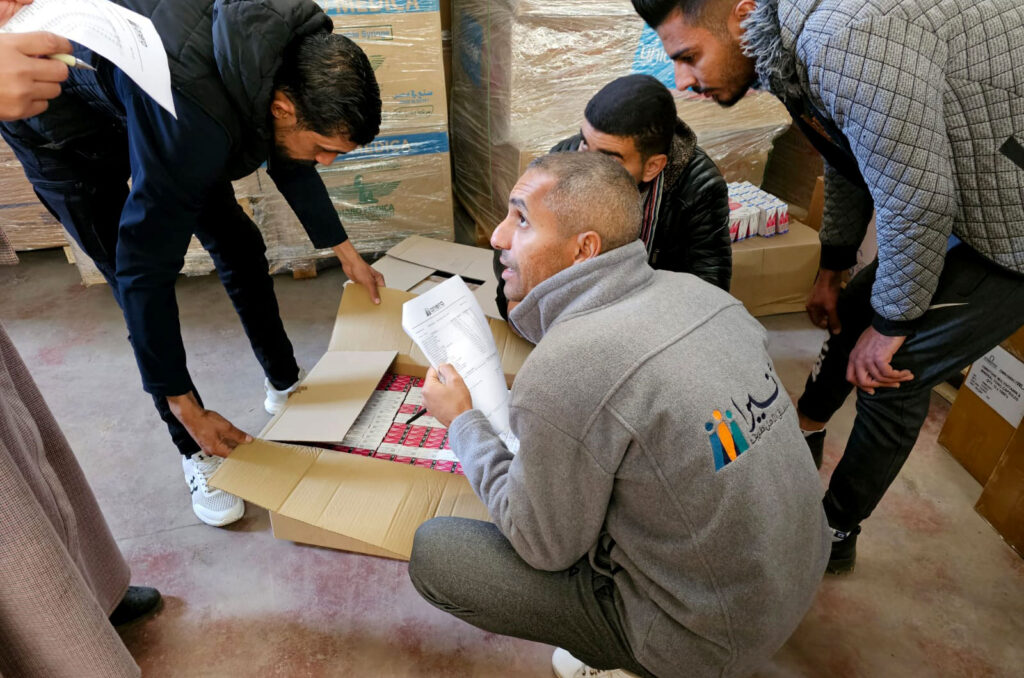

Young children, already accounting for an egregious percent of casualties, are especially vulnerable. According to UNICEF, cases of diarrhea in children under the age of five have skyrocketed since October. In just one week, cases rose from 48,000 to 71,000, representing a monthly increase of 2,000%. Acute and prolonged diarrhea puts children at a high risk of death.
In these dire conditions, a ceasefire, an end to Israel’s siege, and a vastly scaled-up system to distribute water and hygienic products are the bare minimum response that is needed. Hostilities themselves have eroded the physical infrastructure for WASH across Gaza, such as water wells, wastewater systems and water desalination plants. Even when water pipelines, humanitarian aid, electricity and fuel are allowed back into Gaza, this infrastructural damage alone will necessitate extensive rehabilitation.
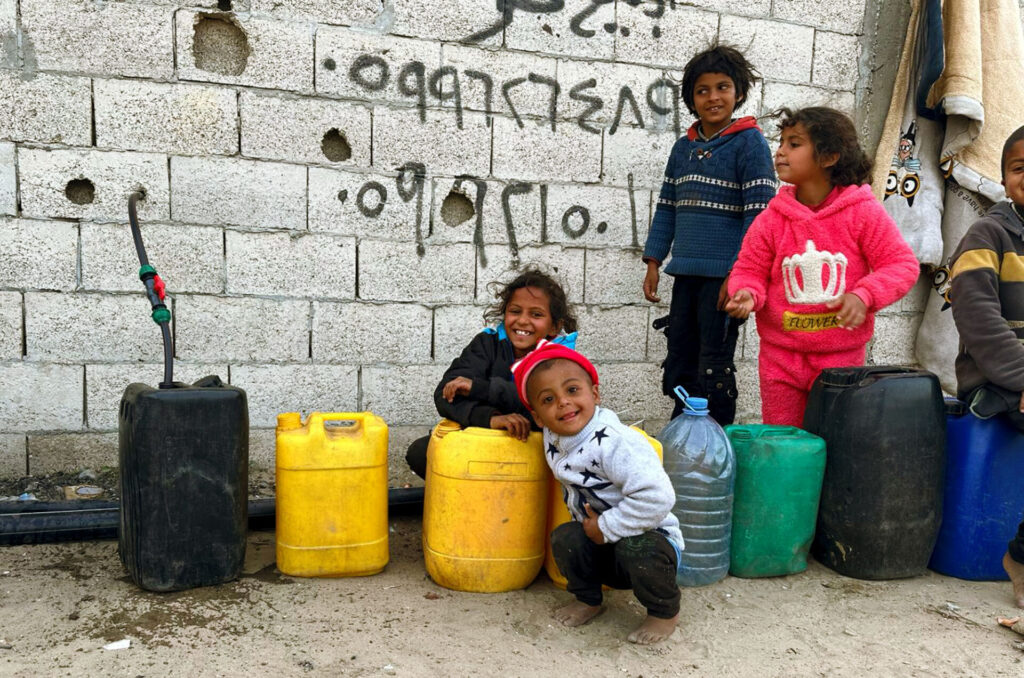

The long-term effects from this deprivation of WASH are concerning as well. Over 1.1 million children and 1 million adults will need support to heal their bodies from the profound cases of disease and malnutrition they are currently experiencing.
Anera’s Response to WASH Needs in Gaza
Now and in the future, Anera is committed to improving the wellbeing of every person in Gaza. With support from our amazing staff on the ground in Gaza, we continue to provide as much WASH support to people as possible.
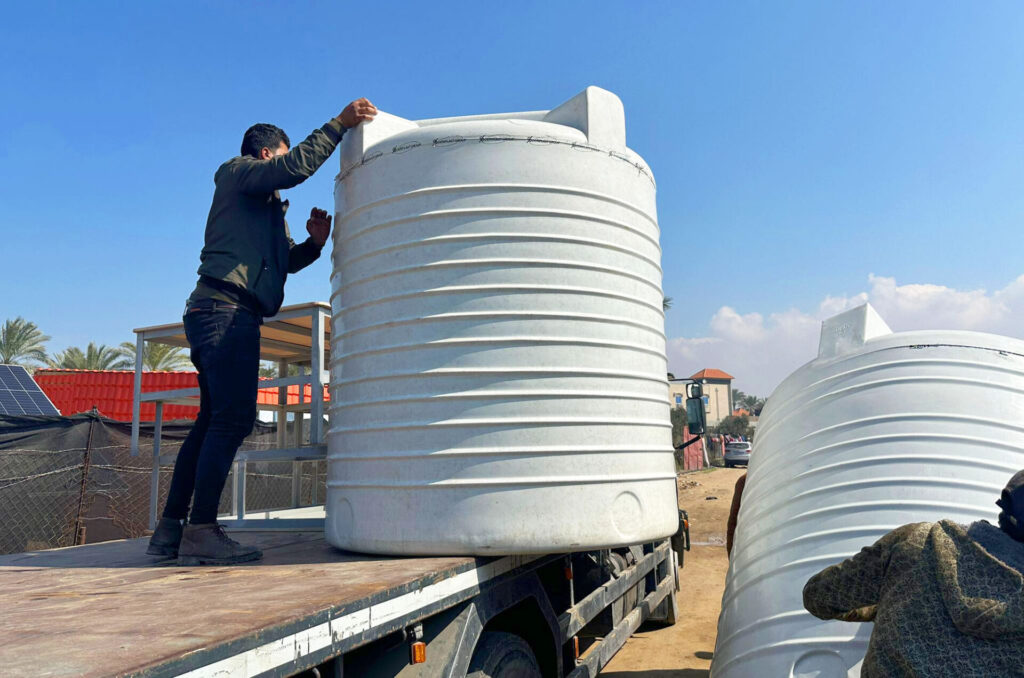

Anera has remained committed to distributing hygiene kits to people. These kits, containing items such as diapers, nail clippers, shampoo and soap, were also an immediate priority. Since the start of the war, we’ve distributed 33,238 hygiene kits. In addition, Anera has worked to ease the difficulty of women and children. We’ve distributed 3,950 menstrual hygiene kits that include items such as wipes, menstrual pads and diapers.
To support the local communities and reduce the spread of disease, Anera also quickly initiated cleaning protocols for five UN shelters. We hired a local cleaning agency to conduct daily cleaning services in an effort to make the crowded living conditions more safe.
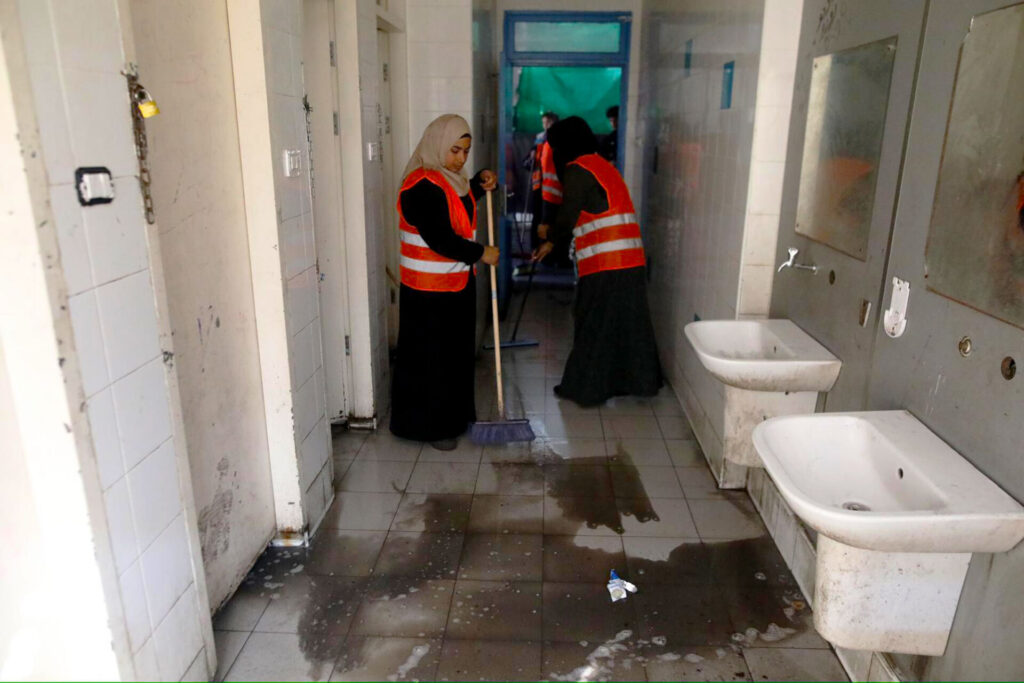

In the month leading up to the war, Anera had distributed water purification tablets to families. These became more essential than ever. Since the war began, Anera has been focused on delivering water to people in need. We immediately began directing our resources towards purchasing water locally that could be distributed to newly displaced people.
Since October 7, our staff has received and distributed 69 trucks of water. From these shipments, we’ve distributed 185,000+ bottles of water to families throughout Gaza, specifically targeting those living in informal shelters. Anera has also distributed LifeStraws, personal water filtration devices.
Early in the war, on October 19, our Gaza staff were able to get a generator functioning in the Zawaydeh area of Deir Al Balah to help 100,000 people access clean water. In another case, they were able to coordinate the delivery of 1,180 liters of fuel to run a water filtration plant in Beit Hanoun to generate 800,000 liters of water for surrounding populations.
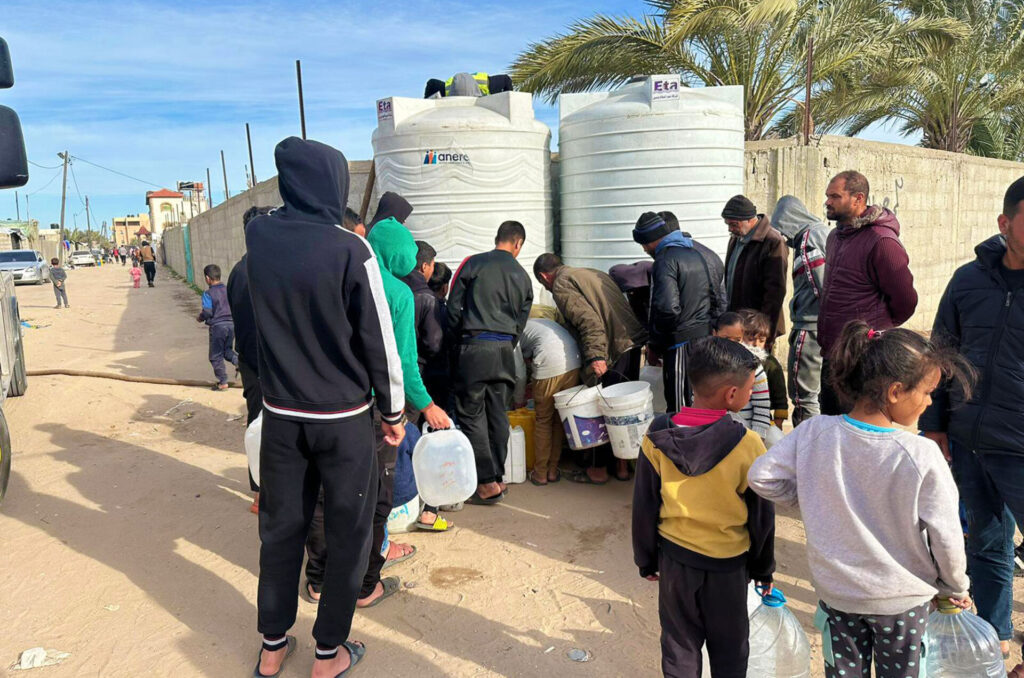

Anera has more recently been working to install water tanks with a local water purification company in Palestine. Anera has installed 149 such tanks throughout Gaza, strategically targeting areas with the greatest need. These tanks are filled twice a day and ensure a sustainable supply of drinkable water for the surrounding communities. With the UN OCHA WASH project, Anera constructed 22 in the Al Mawasi area in Rafah. This area, which hosts many displaced people, now receives a daily supply of 60,000 liters of water that benefits 20,000 individuals.
For decades Anera has worked to improve water and sanitation services in Gaza and some of our interventions continue to have an effect. Our support for Gaza’s water infrastructure has become even more essential since the war began. Earlier this year, Anera installed a solar powered RO system at the Ghosn Al Zaitoun Preschool in Rafah. Now, the RO system is providing 750 people in the area with clean water and generating power for the community to charge mobile phones and other small batteries for lighting.
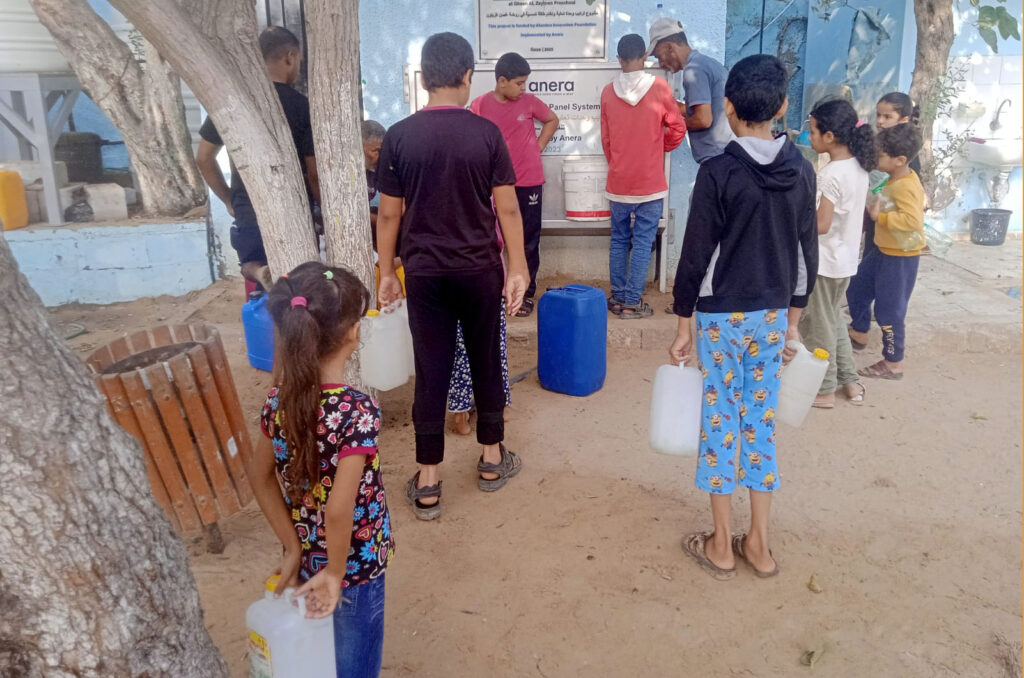

Anera’s Longer-term Response in Gaza’s WASH Sector
After the war ends, over the course of three years, Anera will work to revitalize Gaza’s water and sanitation infrastructure with a comprehensive plan totaling $9,330,000. The initiative encompasses several key forms of rehabilitation to address the damage from the war as well as pre-existing challenges – rehabilitating water wells, pumps, and solar panels, strengthening stormwater collection capacities, erecting water tanks, rebuilding reverse osmosis units, and building mobile toilets and showers.
Until the war ends, however, it will be impossible to know the scope of the work that needs to be done. This plan is just the starting point to rebuild. It is our hope that we can help individuals exist in a state of wellbeing that empowers them as they rebuild their lives.
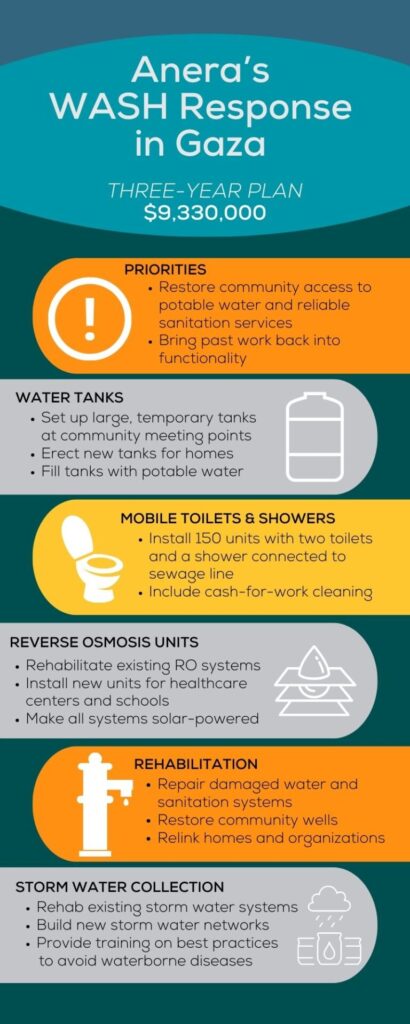

OUR BLOG
Related
Part of a series on the impact of the war on all sectors of economic life within Gaza, Anera’s immediate response and plans for the future. Other posts cover housing, education, WASH, health and food production systems. Livelihood Recovery In Gaza, 57 years of occupation and…
InterAction and 50 Member CEOs, some of whom have organizations that work in Gaza, urge President Biden to take decisive and actionable steps to alleviate the humanitarian crisis in Gaza. Detailed within this letter are specific steps and commitments that…



